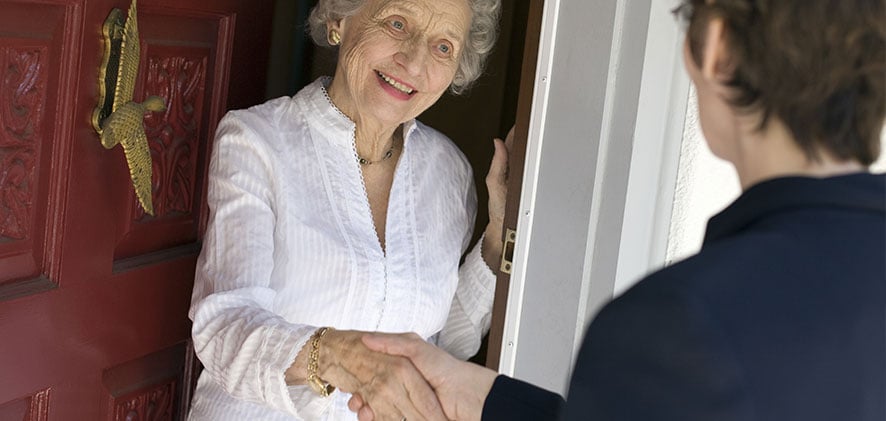Preparing a clients’ Will and discussing personal details with them to ensure loved ones benefit from the estate in the future can be a sensitive matter – but do the benefits of home visits compromise legal professionals safety?
Dealing with such private information can be made less daunting if an appointment can be arranged in the client’s home but legal professionals’ safety needs to be taken into consideration.
Commenting on behalf of the Institute of Professional Will Writers, Chairman, Dennis Gardener said: “A very interesting article, easy to dismiss as “wouldn’t happen to me” but should we wait till a serious incident happens before we do something reactively or look on it as proactive work to hope it never gets tested!
At the Institute of Professional Will Writers we are going with the “let’s get things in place to prepare for awkward situations” for our office staff if working alone in the office or out on the road on compliance visits. We have also circulated the article to our members asking if they have ever had cause for concern and plan to look into a course of action that we all should follow “just in case”.
Great thought provoking article, thank you for writing and researching it.”
Director General of The Society of Will Writers (SWW), Brian McMillan discusses legal professionals’ safety and the benefits of home visits to clients. He said:” I’m often asked what is the advantage of using a member of the SWW over a more conventional solicitor?
There are many good reasons, and I’ll go into these in a separate article at a later date, but the main one that we are concentrating on is the convenience that Will writers offer clients by attending them in their own home (or place of work), more often at evenings and weekends when both parties (if a couple) can be available.
The question is “is it safe to carry out home visits? The SWW is coming up to its 25th anniversary and I’ve never come across a situation where the consultant felt threatened; except in the case of the Will writer who spilt their drink on the cream living room carpet, and the whole of the downstairs had to be carpeted, obviously the clients were none too pleased; thank goodness for Public Liability Insurance.
As with most things there are two sides to be considered; but both can have serious consequences for the consultant who is attending the client at home.
The SWW has always stressed to its members the importance of dealing with vulnerable, elderly and single clients when alone.
From the client’s perspective, if they fall into any of the above categories, they should be advised in advance that they could and possibly should have someone with them to protect their interests. Preferably a friend or neighbour rather than a beneficiary or close family member. If the client has been diagnosed with the early onset of dementia, having another person is of particular importance, not only to record the conversation but also to avoid any future claims of wrongdoing.
The consultant, on the other hand, can be accused of harassment, or worse and if he or she has no other person in attendance with them, it would fall to one word against another if an accusation of misconduct, or worse was to be brought.
Taking instructions in the privacy and seclusion of the client’s home can bring with it many issues, and with the best will in the world, we enter these situations mostly without a second thought as to the consequences. But without such a service many people who need a Will would go without if they were housebound, elderly or frail.
Following these simple suggestions can help protect the professional from unwarranted claims, as well as the client.
Although I’ve used vulnerable, single and elderly people this is by no means exhaustive, it can equally apply to couples as well.”
As a legal professional in the Will writing sector, do you think about your personal safety when carrying out home visits?



















